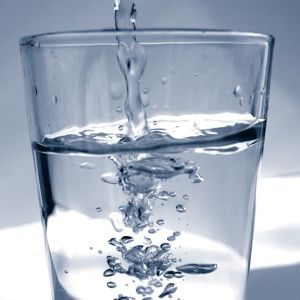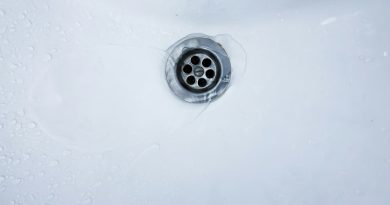What You Need to Know About Your Home’s Water
Your home’s water system has many functions. You use it for hygiene, hydration, and to power your appliances. However, sometimes your water can become hard. In fact, 85% of people live in a hard water area.
Hard water occurs when there are higher levels of minerals, such as magnesium and calcium. This type of water can create issues for your home and hygiene routine. Here are some of the things to keep in mind about hard water.
It Can Impact Your Pipes
Over time hard water causes minerals to build up, clogging your sink and shower drains. The minerals can also restrict water flow. If not treated it can damage your pipes or lead to leaks. Water accumulation can produce mold and require repairs. It can cost around $2,280-$5,120 to replace plumbing.
It Can Lower the Efficiency of Your Appliances
The clogged pipes will decrease the amount of water flow to your appliances. Then they won’t be able to run as efficiently. Over time this can end up shortening their lifespan. In addition, the hard water reduces the soap’s ability to make suds, causing the appliance to work harder.
Along with functional issues, hard water can cause cosmetic problems. The residue, known as scale, forms a chalky white substance around your appliances. Dishwashers, washing machines, and coffee makers are common items affected.
It Can Damage Your Water Heater
When the temperature rises, the magnesium and calcium are deposited inside the boiler. The mineral build-up can damage the system. Also, over time the furnace’s heating elements are blocked.
Then the system needs to run more frequently and longer to heat the same amount of water. The consistent strain can damage parts and lead to replacements. So, you want to have your HVAC system inspected at least once a year to check for signs of build-up.
It Impacts Your Hygiene
Hard water can have an impact on your skin and hair. It can cause you to have flaky and dry skin. Also, it can clog your pores, leading to acne or eczema. Try using soap-free cleansers and take shorter showers to decrease these effects.
With hard water, your hair can lose its volume and become dull. In addition, your scalp may become dry or accumulate dandruff. Use a shower filter or apply a moisturizing mask to limit these impacts. Keep in mind high levels of pH or chlorine can also damage your hair.
It Will Increase Your Expenses
Having hard water not only impacts your home but your bills as well. It takes more energy to heat hot water. Also, you may spend more money replacing your appliances. In addition, you’ll buy laundry detergent more often. Since the hard water makes the soap less effective you end up using more per load.
Recognize the Common Signs of Hard Water
Know that you know the problems with hard water. Here are some of the common signs to look out for:
- Spots on your dishes
- Faded or stained clothing
- Dry hair or skin
- Low water pressure
- Appliances breaking
Test Your Water’s Hardness
If you notice any of these signs, you want to take action. The first step is testing your home’s water. One way to do this is to check with your city. Each year you should receive a report about your water quality from your water company. On the report, it may include the water hardness. If it doesn’t then call your local water municipality.
You can also do a quick at-home test. Follow these steps:
- Gather an empty bottle with a cap
- Fill it partway
- Add a few drops of liquid soap
- Shake it up
Suppose you notice a lack of bubbles and the liquid is cloudy. Then your water is hard. You want to use a basic soap, like Castile, which has no detergents. Keep in mind this is just a basic assessment. For more accurate results, use a hard water test kit. These come with test strips and a color chart. You can buy them at your local home improvement store.
Install a Water Softening System
Suppose your water is hard. Installing a water softener can help minimize the negative impacts. It can also reduce your energy expenses. These systems work by removing calcium and magnesium from your home’s water.
There are multiple types to choose from, such as salt-based and dual tank. You most likely want to hire a professional plumber to install it. They have the knowledge and the right equipment. It will cost around $500-$6,000 for a water softener.
Try Home Remedies
Along with installing a water softener, try simple home solutions. For example, use vinegar to remove the build-up of soap scum. Place your stained fixtures in a bowl of hot, all-natural vinegar to get rid of the calcium deposit. You can also use distilled vinegar to kill mold bacteria and germs.
Another trick you can try is lowering your water temperature. Higher temperatures contribute to mineral build-up. In addition, flush the water heater regularly to prevent clogs.
Importance of Home’s Water Supply
You may not pay much attention to how your water supply impacts you. Although, the hardness of your water affects your appliances and even your skin. So, you want to test your water and install a water softener to protect your home.




